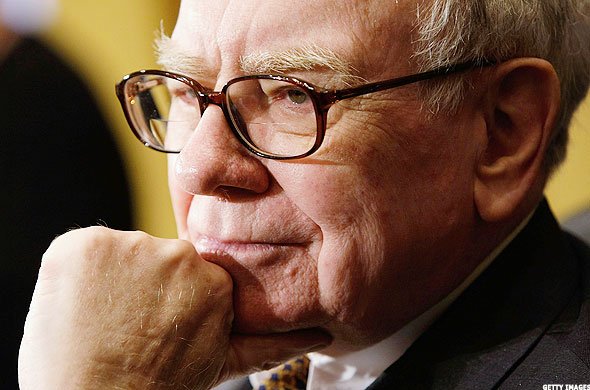Is Bitcoin really just rat poison? Nope. But there's still something to be learned from Buffett.
Just to refresh everyone's memory, Warren Buffett recently referred to Bitcoin as "rat poison".
The Oracle of Omaha himself has called Bitcoin "rat poison". Buffett, the arguably most successful investor in modern history, thinks BTC is crap. He is probably on to something, right?
In our view, no, he's not. Allow us to explain why in the most simple way possible.
For a guy like Buffett, value is where it's at. He invests, he doesn't trade. And he doesn't invest in companies in the hope that they will "explode" later to make x gains (much like how VCs do it).
No, Buffett looks for companies that deliver real value to people, that have a working business model, and whose financials show sound financial and asset management. He also cares deeply about cash flow and dividends. He takes the dividends made from these successful business and reinvests them. He's big on compound investing, by the way!
The main question here is: is buying BTC giving an investor the right of ownership of a part of a business? The answer is no, so it can't be a stock.
Now, maybe it's ike forex or commodities? Perhaps you can classify it as a commodity rather than a security?
Perhaps, but commodities provide real value to people and are used by successful businesses as a part of their business model (for example, a petrochemicals company buying oil, a commodity, as a part of its value add to its customers - it makes its products as derivatives from oil). Can Bitcoin do that? Not in the traditional sense, no.
So it doesn't give you the right of ownership of a part of a company, and it's not a commodity either. Maybe it's like real estate?
Again, no. When you buy a piece of land or a house or an apartment, you can either actively use it yourself or lease it or sell it later, but its main function would be to provide space in order for other essential activities to take place (living, working, manufacturing, etc). Does Bitcoin allow this? Not really.
(Of course, we can make some advanced arguments for BTC and other cryptocurrencies for how they could be classified as securities or commodities or another asset class entirely. We're just covering the very basics here in order to shed some light on what's going on in Buffett's mind).
So, in the traditional sense, Bitcoin (and all other cryptocurrencies) isn't really an "asset", and the only reason it has value is because people are speculating about it and what its price is going to be.
But, all this doesn't mean it's rat poison.
Bitcoin and other cryptocurrencies are a completely new asset class that we haven't really seen before, and we're still not sure how to fundamentally value them. They also do provide value, just not value in the traditional sense. They allow us to surpass borders in our payments, transact privately and securely, take control of our funds and make them entirely our own instead of entrusting them to banks, etc etc.
So, they do have value, and they're only going to improve over time as the technology they're based on develops.
BUT, there's a lesson to be learned here.
While we still have no way of fundamentally valuing cryptocurrencies, this doesn't mean that we shouldn't be trying to constantly value them SOMEWHOW, even if each individual's way of valuation is different than the next guy. We need to be able to look at any cryptoasset that we own, point to it, and say "This is why this is worth something. This is its real value", whatever "this" actually is.
Otherwise, we're really just speculating. Which is, you know, ok to do, but we need to be honest with ourselves over what we're doing. Are we investing or speculating? Because those two are very different even if the lines between them are blurry.
We'll leave you with this bit of advice: the next time someone criticizes Bitcoin or cryptocurrencies, try to take a moment to see where they're coming from and whether there's any bit of logic or truth to what they're saying. Whether or not they're right, you might learn something.
